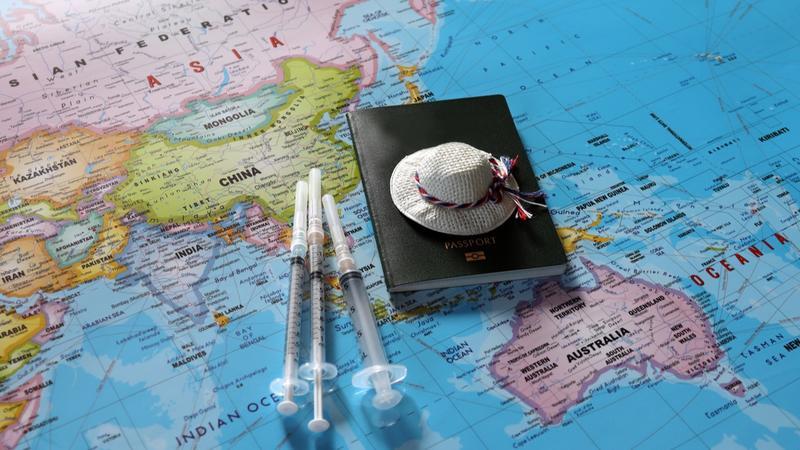If you're planning a trip abroad this summer, part of your plan should include the required vaccines. You will also need to consider a list of recommended vaccines which vary depending upon international region and health risks. Start at least six weeks before your scheduled trip to make sure you've gotten all the necessary vaccines to have a safe, healthy trip.
What routine vaccines should I have for my trip abroad?
If you've already been immunized, you should check with your healthcare advisor to learn if vaccine boosters are necessary. Canada maintains a schedule for routine immunizations for adults which include:
- Diphtheria and Tetanus boosters (every 10 years)
- Shingles (1 dose over age 60, may be used ages 50-59)
- Human papillomavirus (men and women up to age 26)
- Influenza (annual shot)
- Measles and mumps (susceptible adults in or after 1970)
- Meningococcal conjugate (up to age 24)
- Pertussis (1 adult dose, and additional dose for pregnant and parenting adults)
- Pneumococcal polysaccharide 23-valent (age 65 and older, 1 dose)
- Polio (for previously unvaccinated people)
- Rubella (1 dose for susceptible adults)
- Chickenpox/varicella (1 to 2 doses depending on age and history)
Your health care provider will guide you through this schedule and ensure you are up to date on all of your routine vaccinations well before your trip.
What are recommended vaccines for illnesses encountered abroad?
Depending upon where you'll be traveling, different vaccines are recommended for health problems in various regions. Some common travel vaccines include:
- Bacillus Calmette–Guérin vaccine (tuberculosis)
- Typhoid
- Haemophilus influenzae Type B(Hib)
- Hepatitis A and B
- Malaria
- Cholera/travelers diarrhea
- Rabies
- Smallpox
- Japanese encephalitis
What vaccines are required for travelers abroad?
Yellow fever (YF) vaccine is the only vaccine which falls under International Health Regulations. The World Health Organization maintains a list of countries where you must provide an International Certificate of Vaccination or Prophylaxis showing that you've had the YF vaccine in order to enter. The certificate becomes valid 10 days after vaccination.
Yellow fever occurs in subtropical and tropical areas in South America and Africa. Some people can't take the yellow fever vaccine for medical reasons. In this case, health care providers will issue an International Certificate of Medical Contraindication to Vaccination. Countries are not required to accept this certificate, but Health Canada notes that the certificate is "usually accepted."
Saudi Arabia requires the meningococcal vaccine for adults and children over age 2, recorded on a valid International Certificate of Vaccination or Prophylaxis. The vaccine must be administered at least 10 days before arrival in Saudi Arabia.
Is there a shortage of the yellow fever vaccine?
Yes, the yellow fever (YF) vaccine is currently in a world-wide shortage. Each Canadian province has designated yellow fever vaccination centres. You will be required to visit one of the centres to receive the YF vaccine if you're travelling to an at-risk country or to one that requires the certificate.
The list of vaccines you may need can seem overwhelming. Health Canada has developed a mobile app to manage your vaccines or those of your family.
Further Protection
Now that you've taken action to protect yourself from infectious disease while travelling, you can also vaccinate yourself against financial loss with travel insurance. Find travel insurance through InsuranceHotline.com's helpful comparison tools.
